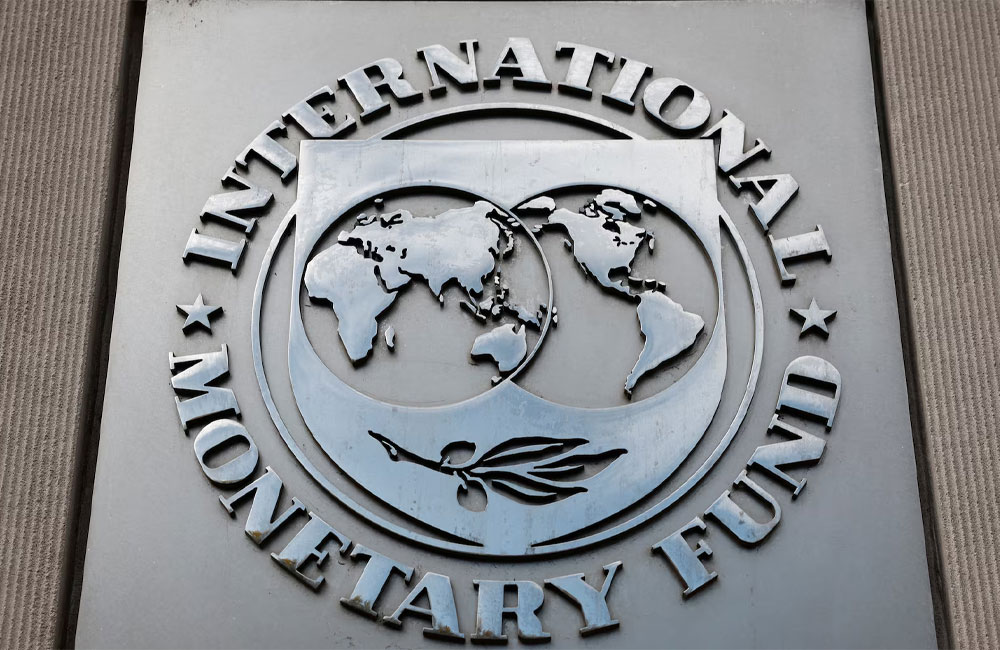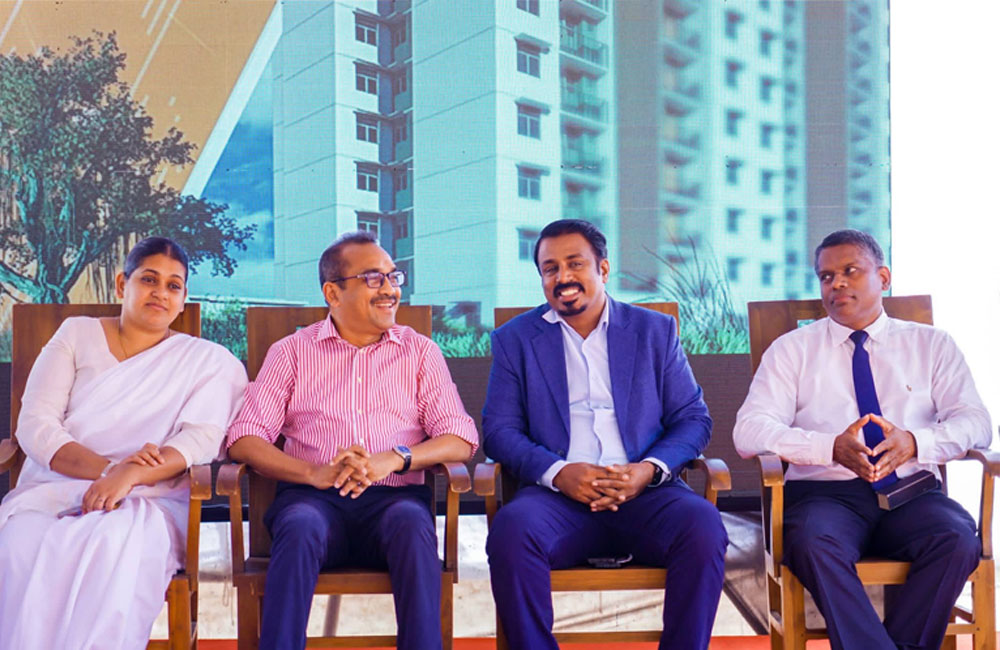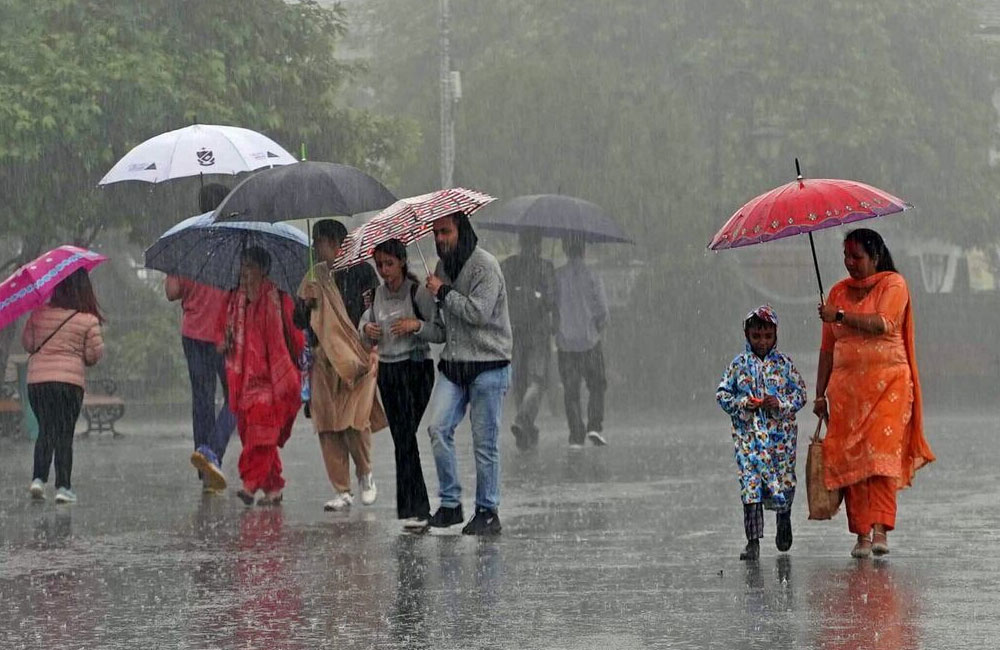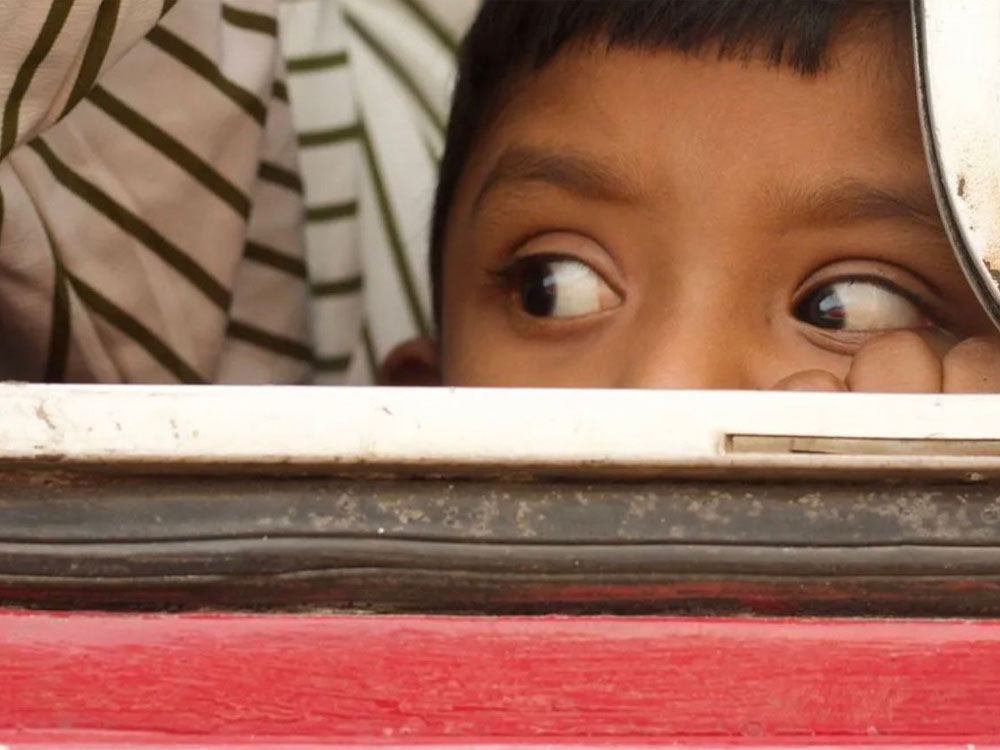News

IMF Chief to Visit Sri Lanka Next Month to Review Reforms and Show Support After Disasters
International Monetary Fund Managing Director Kristalina Georgieva will travel to Sri Lanka next month to review the country’s economic reform programme and express the IMF’s support in the aftermath of recent natural disasters, according to IMF Asia and Pacific Department Director Krishna Srinivasan.
Speaking during an official mission to Sri Lanka, Srinivasan said the visit will focus on recognising progress achieved under the IMF-supported programme while also engaging directly with communities affected by the recent catastrophe. He conveyed this message to President Anura Kumara Dissanayake during a meeting on January 28.
Srinivasan, who is leading one of the largest IMF delegations to visit the country, said this marks his fourth visit to Sri Lanka and his first that extended beyond Colombo. He spent two days in areas outside the capital, noting that the experience provided a more personal understanding of the country’s current challenges.
He observed flood-affected regions and damaged infrastructure during his travels and extended sympathies to the people impacted by the disaster, including families who lost loved ones.
According to Srinivasan, there is strong public recognition of the government’s reform efforts, particularly in improving governance, based on feedback he received while visiting local communities.
He also explained that the regional IMF meeting in Sri Lanka, which brings together representatives from across Asia, had been planned well in advance. Despite calls to cancel the event following the disaster, the IMF decided to proceed as a sign of solidarity.
“We want to show that we stand with Sri Lanka,” Srinivasan said, reaffirming the IMF’s continued support for the country and its people.

Construction Resumes on Long-Stalled Torrington Apartment Project
Construction on the Torrington apartment complex, a project that had remained stalled for several years, officially resumed today, the Ministry of Transport, Highways and Urban Development confirmed.
Originally launched in 2012, the development includes 115 housing units but experienced repeated delays, including an unsuccessful restart attempt in 2017. Despite Rs. 160 million already invested, continuous construction had not been achieved until now.
Ministry officials have set a target to complete the project within 24 months and hand over the apartments to qualified beneficiaries.
The resumption ceremony was attended by Minister Bimal Rathnayake, Deputy Minister Eranga Gunasekara, and Colombo Mayor Vraie Cally Balthazaar, marking a significant step toward fulfilling the long-delayed housing initiative

Afternoon Showers Expected Across Several Parts of the Island Today
The Department of Meteorology has issued its weather forecast for today (30 January 2026), warning of unsettled conditions across several parts of the island.
Showers are expected intermittently in the Eastern and Uva provinces, as well as in the Matale and Nuwara-Eliya districts. Fairly heavy rainfall exceeding 50 mm may occur in isolated locations in the Uva Province and in the Batticaloa and Ampara districts.
Several periods of rain are also forecast for the Northern and North-Central provinces and the Hambantota district. In other parts of the country, showers or thundershowers are likely to develop at multiple locations after 2.00 p.m.
Meanwhile, misty conditions can be expected during the early morning hours in parts of the Western, Sabaragamuwa, Central and North-Western provinces, including the Galle, Matara and Anuradhapura districts.
The general public has been advised to take necessary precautions to reduce possible damage from localized strong winds and lightning associated with thundershowers.

Sajith Premadasa Visits Hyundai Innovation Centre in Singapore to Explore Advanced Manufacturing
Opposition Leader Sajith Premadasa visited the Hyundai Motor Group Innovation Centre Singapore (HMGICS) as part of his ongoing study tour, examining state-of-the-art manufacturing technologies, electric vehicle production, and smart industrial systems.
The HMGICS, established in 2023 after the COVID-19 pandemic, represents a multi-billion-dollar investment and functions as a research-focused hub integrating robotics, automation, and data-driven processes into modern manufacturing.
During the visit, Premadasa observed Hyundai’s electric vehicle assembly lines and the application of artificial intelligence and robotics across production. The centre’s initiatives in smart agriculture and sustainable industrial systems were also showcased.
Describing the facility as an “impressive model,” Premadasa emphasized that technology-led investments aligned with his “SMART Sri Lanka” vision should be promoted to support future-focused national development. He further stressed that exposure to international best practices is vital for shaping long-term policies, noting that innovation-driven ecosystems are essential for enhancing productivity, sustainability, and economic resilience in a rapidly changing global landscape.


Special Traffic Restrictions Announced in Colombo for Independence Day Events
Sri Lanka Police have announced that a special traffic management programme will be in effect in Colombo starting today (30), in preparation for rehearsals and celebrations marking the 78th National Independence Day.
According to police, rehearsal sessions are scheduled for today (30), tomorrow (31), and February 2. During these days, traffic restrictions will be enforced on roads surrounding Independence Square from 7.45 a.m. to 1.30 p.m.
In addition, police stated that vehicular movement will be restricted from 5.00 a.m. to 1.30 p.m. on February 1, while further restrictions will be in place from 5.00 a.m. on February 4 until the Independence Day ceremony concludes.
Authorities said the special traffic arrangements are aimed at ensuring smooth conduct of official events while managing traffic flow within the city. Motorists traveling through Colombo have been urged to follow traffic instructions and use designated alternative routes to minimize inconvenience.

Sri Lankan Rupee Shows Minor Dip Against US Dollar; Bank Rates Largely Stable
The Sri Lankan Rupee recorded a marginal decline against the US Dollar today (29 Jan), although exchange rates at most major commercial banks remained largely unchanged compared to Wednesday.
At Seylan Bank, the US Dollar continued to trade at Rs. 306.95 for buying and Rs. 311.70 for selling. NDB Bank also maintained steady rates, with the buying and selling prices at Rs. 306.40 and Rs. 312.95, respectively.
People’s Bank reported a slight dip in both rates, with the buying rate falling from Rs. 306.23 to Rs. 306.14 and the selling rate edging down from Rs. 312.99 to Rs. 312.89. Commercial Bank kept its rates unchanged at Rs. 304.36 (buying) and Rs. 312.75 (selling), while Sampath Bank maintained its buying and selling rates at Rs. 306.50 and Rs. 313, respectively.
Overall, the currency market showed relative stability, with only minor adjustments observed at select banks amid ongoing trading.

Sri Lanka Sees About 100 New Cancer Cases Daily, NCCP Reports
Sri Lanka continues to record a high daily burden of cancer, with approximately 100 new patients diagnosed each day and nearly 40 deaths reported daily, according to the National Cancer Control Programme (NCCP).
Community Medicine Specialist Dr Hasarali Fernando revealed these figures citing data from the National Cancer Registry 2022, while addressing a media briefing held in view of World Cancer Day on February 4.
She stated that a total of 35,855 new cancer cases were identified in 2022, while 14,986 deaths linked to cancer were recorded in 2021. Of those newly diagnosed, around 19,500 were women and about 16,400 were men.
Registry data shows that oral cancer remains the most commonly diagnosed cancer among men in Sri Lanka. Among women, breast cancer is the leading cancer type, followed by thyroid and colorectal cancers.
Dr Fernando also noted that the World Health Organization estimates that between 30% and 50% of cancers can be prevented. She explained that factors such as ageing, gender, family medical history and genetic predisposition significantly increase cancer risk. Sri Lanka’s ageing population, she added, is contributing to rising cancer incidence due to increased genetic mutations, weakened immunity and prolonged exposure to cancer-causing agents.

Gold Surges Past $5,500 an Ounce Amid Dollar Weakness and Investor Flight
Gold prices soared to a historic peak above $5,500 an ounce, extending a rapid rally fueled by a weakening US dollar and investor moves away from sovereign bonds and currencies.
The precious metal surged as much as 3.2%, following a 4.6% gain in the previous session — the largest single-day jump since March 2020, at the height of the Covid-19 pandemic. Silver also climbed to an all-time high on Thursday, reflecting broad-based strength across the precious metals sector amid heightened geopolitical uncertainty and growing concerns about the independence of the Federal Reserve.
Traders appeared to look past the Fed’s widely anticipated decision on Wednesday to maintain interest rates. With a new Fed chief expected to succeed Jerome Powell later this year, Rick Rieder of BlackRock Inc., known for supporting more aggressive rate cuts, has emerged as a leading candidate. Markets are increasingly pricing in a dovish shift in US monetary policy, which benefits non-yielding assets like gold and silver.
As of 9:05 a.m. in Singapore, gold was trading 1.1% higher at $5,477.36 an ounce, having earlier reached an all-time high of $5,588.71. Silver rose 0.7% to $117.47 an ounce, while platinum and palladium edged slightly lower. The Bloomberg Dollar Spot Index declined 0.1% on Thursday and fell 1.3% for the week, further supporting the precious metals rally.

Widespread Showers and Rough Seas Forecast as Weather Turns Unsettled
The Department of Meteorology says rainy conditions will continue to affect several parts of the country, with showers expected at times in the Eastern and Uva provinces, as well as in the Matale and Nuwara-Eliya districts.
Fairly heavy rainfall exceeding 50 mm is likely in some areas of the Uva Province and in parts of the Batticaloa and Ampara districts. Meanwhile, the Northern and North-Central provinces, along with the Hambantota district, are expected to experience several intermittent spells of showers.
In other regions of the island, showers or thundershowers are forecast to develop at multiple locations after 2.00 p.m. Misty conditions are also expected during the early morning hours in parts of the Western, Sabaragamuwa, Central and North-Western provinces, as well as in the Galle, Matara and Anuradhapura districts.
The public has been advised to take necessary precautions to reduce potential damage from localized strong winds and lightning associated with thundershowers.
At sea, showers or thundershowers are predicted in areas off the coast stretching from Hambantota to Trincomalee via Batticaloa. Winds will generally be north-easterly, with speeds of 30–40 kmph.
However, wind speeds may intensify to 45–50 kmph at times in sea areas from Kalutara to Mannar via Colombo and Puttalam, and from Hambantota to Batticaloa via Pottuvil. These sea areas are expected to be fairly rough, while other surrounding waters will remain moderate.
The Met Department also warned that temporarily strong gusty winds and very rough seas may occur during thundershowers.

Special Traffic Plan Announced for Hunupitiya Gangaramaya Navam Maha Perahera
The Sri Lanka Police have unveiled a special traffic arrangement for the annual Navam Maha Perahera of the Hunupitiya Gangaramaya Temple, with road restrictions and diversions in central Colombo planned for the evenings of January 31 and February 1.
The traffic plan will be in effect from 6.30 p.m. on both days to facilitate the religious procession, which is expected to attract large crowds and generate heavy congestion.
According to the Police Media Division, the Perahera will assemble along W.A.D. Ramanayake Mawatha, Park Street, and Jinarathana Mawatha, before beginning the procession from Jinarathana Mawatha near the temple. The route will follow Hunupitiya Wewa Road, W.A.D. Ramanayake Mawatha, Sir James Peiris Mawatha, Ultrare Avenue, Staple Street, and Baybrook Place, returning to the Gangaramaya Temple.
Several major junctions along the route, including W.A.D. Ramanayake Mawatha–Hunupitiya Wewa Road, Dharmapala Mawatha–Park Street, and Union Place–Hyde Park Corner, will face temporary closures or restrictions. Entry to several connecting roads and intersections will also be limited during the procession.
Motorists traveling along Sir James Peiris Mawatha have been advised to use alternate routes via Union Place, Nawam Mawatha, Uththarananda Mawatha, and Dharmapala Mawatha to avoid disruptions.
Authorities confirmed that diversions will only apply along the Perahera route, with normal traffic allowed in areas not affected by the procession. The public has been urged to follow the designated alternative routes and cooperate with traffic officers to minimise inconvenience.

Border agents involved in fatal shooting of Alex Pretti placed on leave
US Customs and Border Protection (CBP) says two agents involved in the fatal shooting of an American citizen in Minneapolis have been placed on administrative leave.
The killing of Alex Pretti, a 37-year-old intensive care nurse, on Saturday provoked fresh protests in the state of Minnesota, public outcry across the US and calls from lawmakers in both parties to remove the secretary of the Department of Homeland Security (DHS).
According to a preliminary DHS report sent to Congress, two officers fired their weapons at Pretti during a scuffle. Initial official accounts had alleged Pretti brandished his gun.
It is unclear when the agents were put on leave, or how long they will stay off the job.
CBP told the BBC on Tuesday it had taken the agents off duty following standard protocol. Typically federal law-enforcement agents involved in a shooting remain on leave while the incident is investigated.
On Sunday, CBP Commander Gregory Bovino, though, had told reporters that the agents were still on the job, but working in a different city.
New footage published by the News Movement and shared with BBC News shows an altercation between Pretti and federal officers 11 days before his death.
The Immigration and Customs Enforcement (ICE) agent who shot another US citizen, 37-year-old Renee Good, in Minneapolis on 7 January was also placed on administrative leave, pending an investigation.
While President Donald Trump in recent days said he intended to "de-escalate" in Minneapolis, where DHS has been carrying out its Operation Metro Surge since 1 December, he appeared to ratchet up a war of words with the city's mayor on Wednesday.
On Tuesday, Frey wrote on X that his city would not change its sanctuary policies, which limit cooperation with federal immigration enforcement, and that he had told Trump's border tsar Tom Homan that "Minneapolis does not and will not enforce federal immigration laws".
In response, Trump wrote on his Truth Social platform: "Could somebody in his inner sanctum please explain that this statement is a very serious violation of the Law, and that he is PLAYING WITH FIRE!"
At the same time, Attorney General Pam Bondi announced on Wednesday that she was "on the ground in Minneapolis" and the justice department had "arrested 16 Minnesota rioters for allegedly assaulting federal law enforcement".
"We expect more arrests to come," she added.
Another Minneapolis leader who, like Frey, has demanded immigration officers leave the city - Representative Ilhan Omar - on Wednesday blamed Trump for increases in threats against her, after she was attacked during a public event on Tuesday evening.
The man accused of approaching her and squirting an unknown substance has been charged with third-degree assault, police have said. According to Alpha News, the syringe allegedly used in the attack by the suspect, Anthony Kazmierczak, was filled with apple cider vinegar. The BBC is seeking to confirm the report.
Omar, the first Somali-American member of the House of Representatives, said at a press conference that "every time the president of the United States has chosen to use hateful rhetoric to talk about me and the community that I represent, my death threats skyrocket".
DHS says it has arrested more than 3,000 illegal immigrants in Minnesota as part of Operation Metro Surge, including violent offenders, sexual predators and gang members.
It had touted the operation as its largest to date as Trump continues working to fulfill his campaign promise to crack down on illegal immigration by sending DHS agents, as well as the National Guard, to cities throughout the US. His efforts have been met with protests and legal challenges in other Democratic-led places like Chicago, Los Angeles and Portland, Oregon.
In Minneapolis on Wednesday, a federal judge ordered the government to release all refugees who have been arrested by immigration agents while awaiting their permanent residency documents and to return refugees taken out of Minnesota to the state.
In a strongly-worded ruling, Judge John Tunheim said refugees "are not committing crimes on our streets, nor did they illegally cross the border," adding that the US had been "a haven of individual liberties".
Shortly after Pretti was killed, Homeland Security Secretary Kristi Noem had accused him of "domestic terrorism" and said he was "brandishing" a gun.
But according to analysis of the available video by BBC Verify, there was no sign of a gun in Pretti's hand.
The DHS preliminary report to Congress said that Pretti and CBP agents were in a struggle when an officer yelled out that Pretti had a gun, and then two agents shot him. This differed from initial accounts from the Trump administration that an agent had fired defensive shots.
Now, Republican and Democratic lawmakers are calling for Noem and the White House's lead adviser on immigration, Stephen Miller, to be removed. On Wednesday, senior Democrats in the House threatened to begin impeachment proceedings against Noem unless she resigned or was fired.
Meanwhile, members of both parties are openly discussing removing funding for DHS in spending legislation that Congress must pass to keep the government from shutting down on 1 February.

Travel Photographer of the Year 2025: Sri Lanka Snapshot Takes People’s Choice Honour
A quiet yet powerful moment captured in northern Sri Lanka has won the People’s Choice Award, standing out among hundreds of entries after drawing more than 4,000 public votes.
The winning photograph, taken by Mark Julian Edwards at a bus station in Jaffna, resonated strongly with viewers for its emotional simplicity and storytelling depth. While most categories were decided by a panel of judges, this award was left in the hands of the public and their verdict was clear.
The image is a close-up shot of a young boy seated inside a departing bus, his face framed by the window as he looks outward. The bus, visibly aged with chipped paint and dented metal, bears the marks of time and countless journeys. Against this worn backdrop, the boy’s gaze becomes the focal point calm, curious, and quietly full of anticipation.
Speaking about the moment, Edwards reflected on the contrast that drew him to press the shutter. He described the bus as a vehicle “worn by time,” its surface telling stories of the past, while the child’s expression suggested something entirely different. “There was a quiet energy in his face,” Edwards said, noting that it felt as though the boy was already imagining what lay ahead on the road.
The photograph struck a chord with the public for its universality. Many viewers saw in it a reflection of hope, transition, and the small but meaningful moments that often go unnoticed in everyday life. Set in a bus station a place of constant movement and change the image captures a fleeting second that feels both deeply personal and widely relatable.
By winning the People’s Choice Award, Edwards’ photograph has proven that powerful storytelling does not always require grand scenes or dramatic events. Sometimes, a single look through a bus window is enough to capture the imagination of thousands
Page 22 of 681